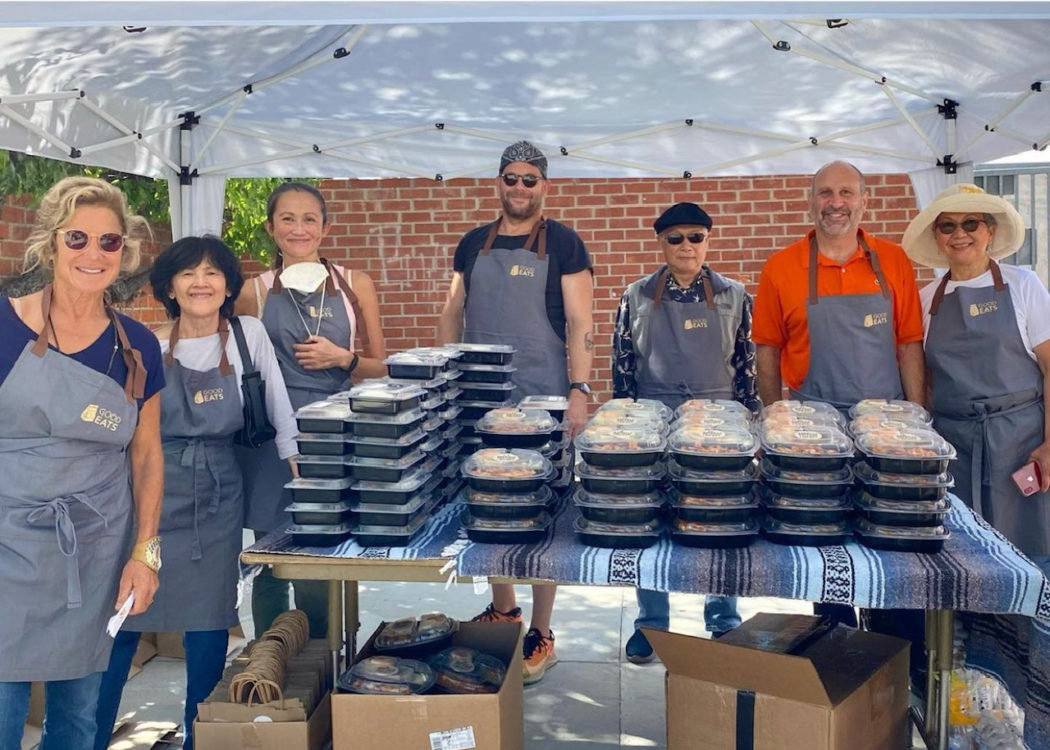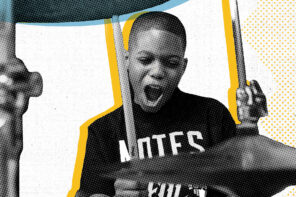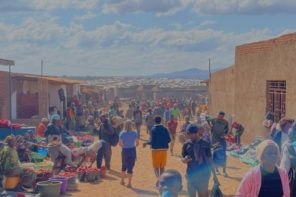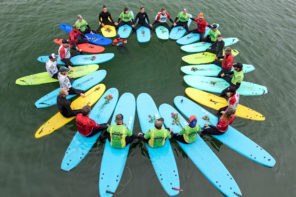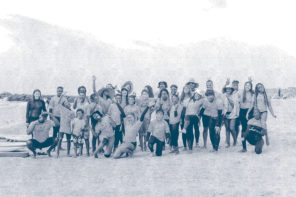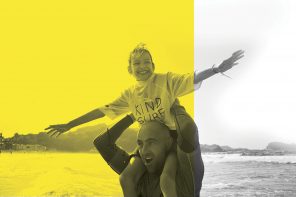Providing meals to the hungry with Good Eats
There are some people in the world that go above and beyond to help others. One person, in particular, is a friend of ours by the name of Adam Rosante, and let us tell you, he does a whole lotta good for a whole lotta people through his organization Good Eats. This program works to feed kids on the weekends who otherwise wouldn’t eat. With thousands of children and families facing hunger in the United States, the kids eat government-subsidized meals during the school week but are then left with nothing on the weekends. Until now.
Working with surrounding communities, farms, restaurants, and the like, Good Eats works to put together meals for students to take home. They place the food in book bags with meals to last the entire weekend, and on Monday when returning to school, the kids bring the bags back to be refilled for the next weekend. All because Adam simply could not walk away from learning this news without doing something about it. Within three days of learning how many students were facing starvation, he met with the school principal and Good Eats came to life and came to serve.
We sat down with Adam to learn more about his efforts, motives, the difference between knowing about it and doing something about it, and the importance of serving without shaming.
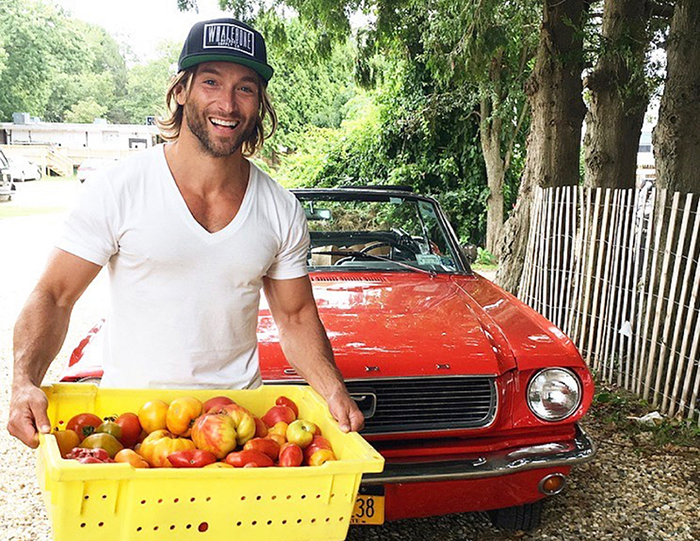
Why do you believe such a prominent problem is something that is so unknown to most of the public? In what additional ways can we help spread the word and help the problem?
Adam: Some people aren’t looking. Others see or hear and don’t want to believe it. The East End, for example, is known for its wealth. It can be hard to wrap your mind around the fact that there are people who can’t afford to buy food in an area where houses sell for north of $20 million.
You don’t know what you don’t know. Until you do. Then you have to ask yourself, “What am I gonna do about it?” Food insecurity is real and it’s everywhere. Even where it seemingly makes absolutely no sense, there are people with nothing to eat.
Food is a basic need. Without it, achieving anything else in life is impossible. If you’re stuck in survival mode, how can you be expected to thrive?
Bridge Bags is a program launched out of Good Eats that has recently expanded to the East End providing low-to-no income families with groceries for the last week of every month. That’s the hardest time. It’s when the paycheck or assistance has run thin or completely out.
It helps bridge the gap during that last week, often allowing the people we serve to pay bills that would have otherwise gone unpaid. It also prevents potentially dangerous and disastrous decisions from having to be made.
My hope is that underlying the food is a restoration of worth and dignity in each individual we serve. That the way we serve takes the shame and stigma out of the situation. That the person receiving the food knows they’re not broken.
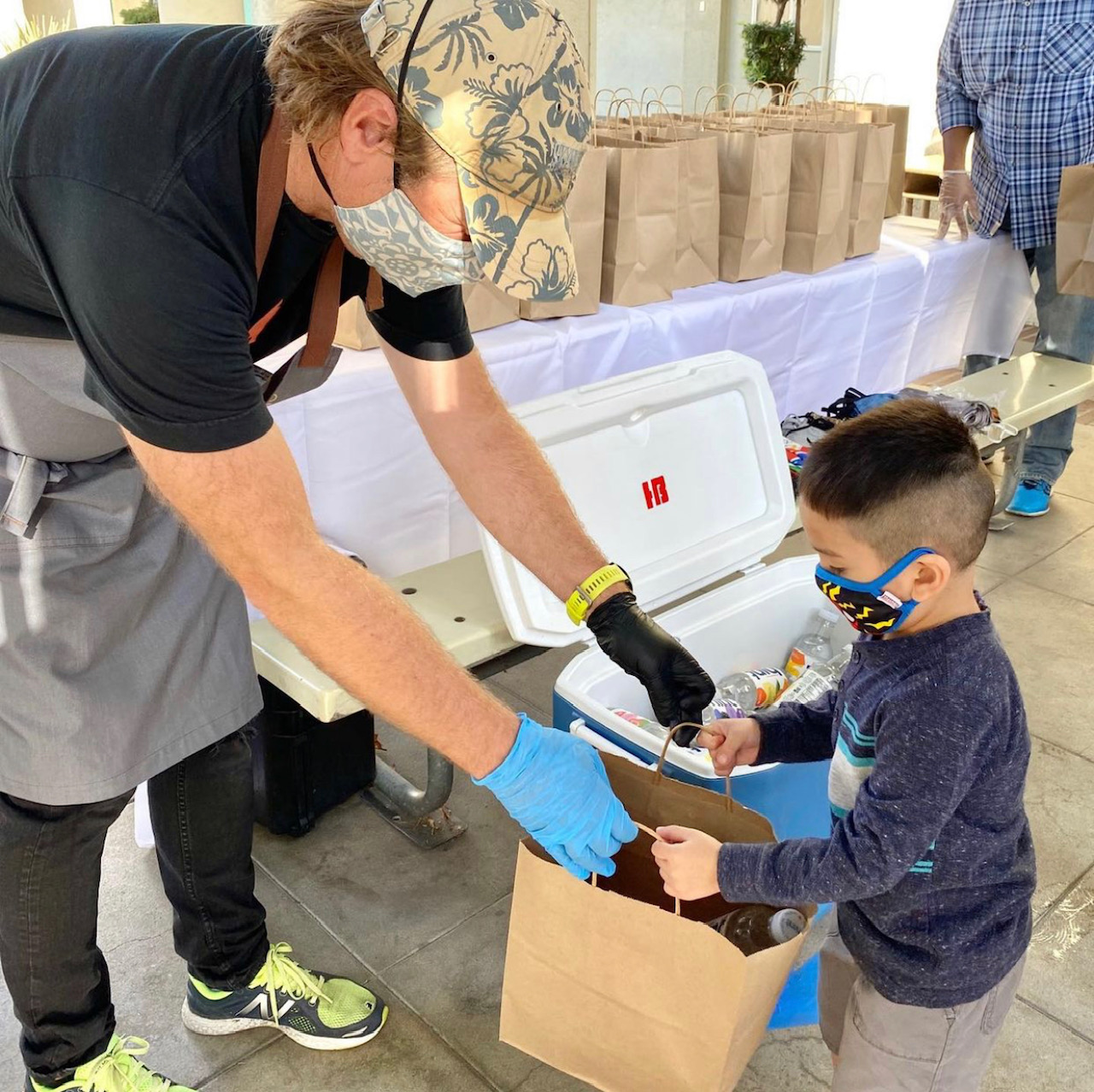
Most rewarding part of starting Good Eats and seeing its success for the kids?
Seeing firsthand how such a simple idea can make a tremendous difference in the lives of children, educators and families.
Try to imagine what a weekend of starvation does to a child’s body and mind. It’s impossible for them to learn and engage in school or life in a positive way. We saw very quickly what a difference weekend nutrition made in all the major markers from improved attendance to reduced rates of disciplinary action to engagement.
How many schools has the program helped thus far? How do you plan to continue the momentum?
Adam: I don’t care how many. Even if it was just one. Our world is so caught up in numbers and metrics. What matters most is that we can be present with the person in front of us. To listen to them with an open heart and be ready with a helping hand if it’s needed.
If you could spread one message to the entire world, what would it be?
Let your life be your message.
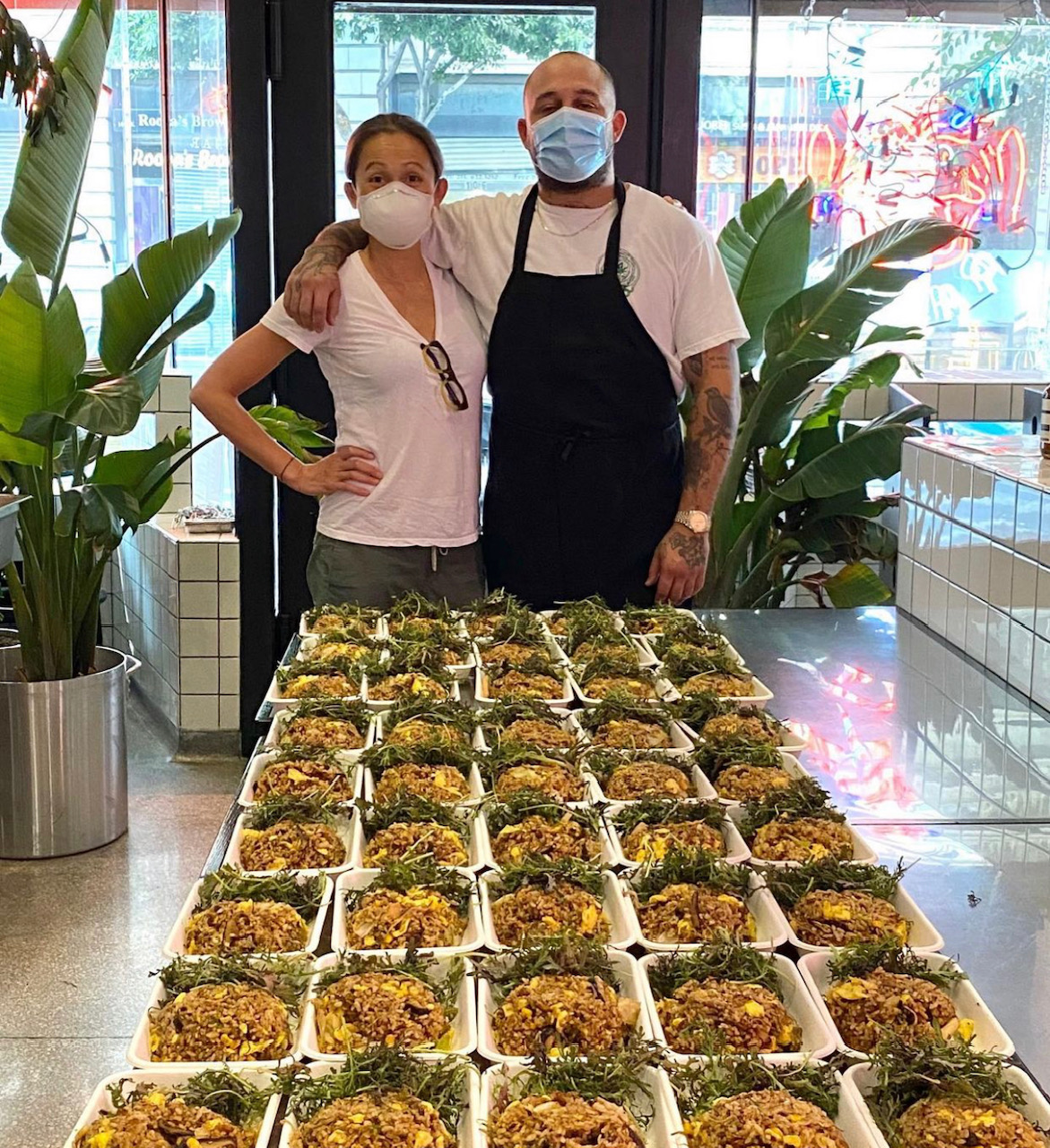
How do you get the surrounding farms, restaurants and stores to help donate food items to your program? How does it feel seeing the community come together to help children in need?
Just by asking. When I thought of doing the distribution for Bridge Bags at Amber Waves Farm, I texted Katie and Amanda and they didn’t even blink. Just a fast, immediate yes. When COVID hit and I pivoted one of our extension programs to serve hot meals to families in need at home, the restaurants I contacted sprung to action.
People are wonderful. They want to be of service. It feels incredible to see that, every day.
What motivated you to immediately turn around and put your efforts into making a difference?
We’re all here to help one another. To give and receive love. That’s my driving motivation in life. I do my best to listen with an open heart and serve what I see in front of me.
What’s your mantra?
Love is all. All is love.
What can people who don’t live in areas where you hand out food do to help the hunger problem?
First, look to see if there’s an organization that’s fulfilling the need. If yes, get clear about your personal tools, time, and resources. Then reach out and offer them up. That’s the first, fastest, and often easiest step. And keep in mind, they may say no thank you.
If that’s the case, see how you can use your tools, time, and resources to give on your own. That could mean making sandwiches and handing them out to people living on the street or if you live in an area where homelessness is hidden, do some digging, find out where people in need are, and meet them there.
Or it could mean you launch a Good Eats in your area.
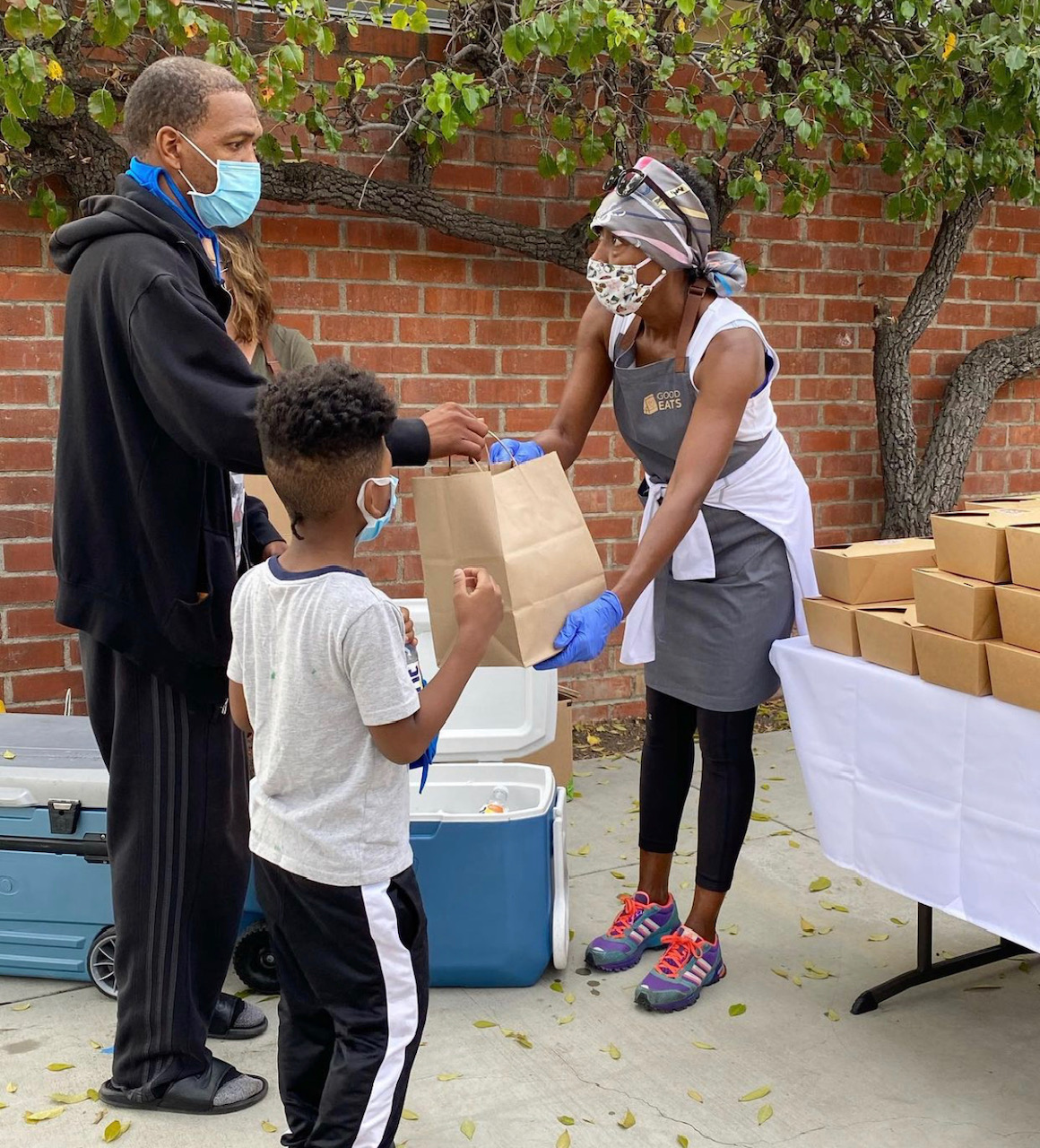
What did the expansion to LA mean to you and your mission?
It meant the world to me on many levels. I was able to expand Good Eats to LA because a woman named Bic, who’s now my partner in Good Eats, came to our first fundraiser, listened to my speech, asked herself, “What am I gonna do about it?” and then dipped into her personal toolbox to launch. So on one level, it continues to validate that people are wonderful and on another obvious level, more people are being fed.
What’s next for Good Eats?
If you really want to be of service, learn to listen with an open heart. If you do that, people will tell you what they need. Then you can really help and not get caught in a trap of trying to give people what you think they need.
We’ll continue feeding children and families until that’s not needed anymore. Along the way, they’ll tell us what’s next.

